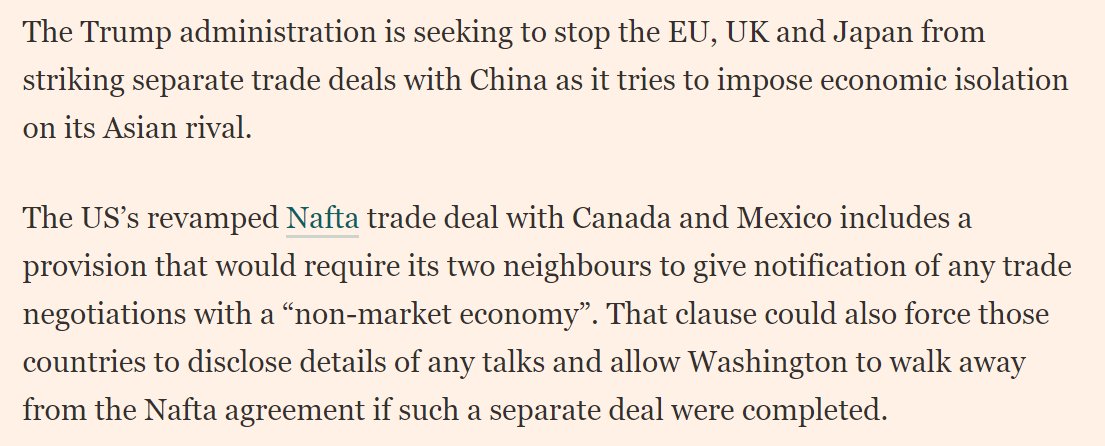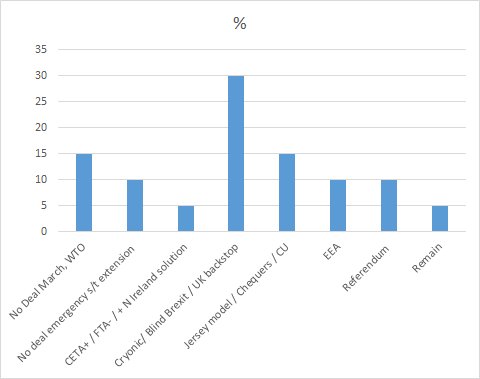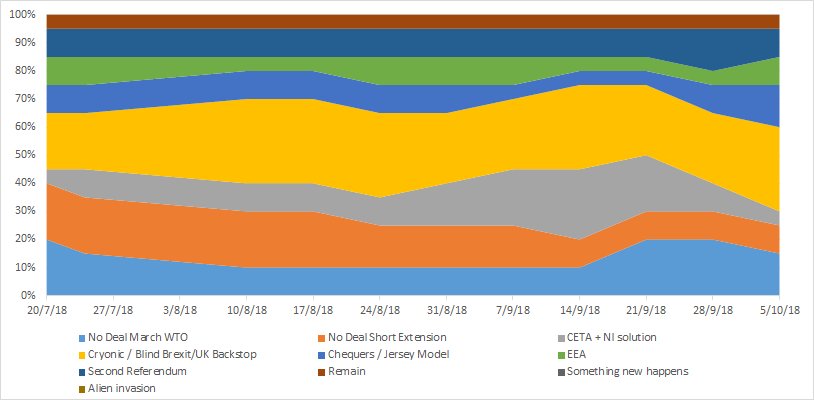Right then, with the warning that this is going to be a long thread, I'm going to try to distill the key points from the IEA #PlanAPlus report - which is typical of their work - lots of trade terms used questionably 1/ iea.org.uk/wp-content/upl…
So this is upfront, in the Executive Summary. Zero tariffs on agriculture we do not produce. It is unlikely to make a huge difference to prices, but could make a big difference to developing countries who currently have zero tariffs 2/ 

I interpret this to mean we should replace the 21 month transition period with a basic Free Trade Agreement with the EU. Zero tariffs would require us to determine optimal rules of origin for all products in 6 months. Not happening 3/ 

A small point, if we leave the EEA and Customs Union we need new agreements with EEA members and Turkey, though nice to see the former at least recognised. Overall this report proposes a ridiculous workload of trade negotiations 4/ 

The contradiction between this statement on developing countries and the earlier statement on tariff free access on agriculture is not recognised 5/ 

This is just bizarre, joining the agricultural exporters group at the WTO, but does give an indication of the essential core of the report - the need to adopt US food standards 6/ 

Another core part of the report, the idea that the world trade system is in crisis and the UK can help fix this. But strange we want to fix "market distortions" more than barriers to UK exports - almost as if theology is more important than business 7/ 

A crucial paragraph. REACH and GDPR are cited as key examples - but of course these are examples of EU regulations having global effect. The question, not really asked, is how damaging it would be for UK to diverge 8/ 

At best this is questionable. Particularly with regard to the US, but equally China. Perhaps 'managed competition' would be more accurate. But this deserves more consideration on the impacts for the UK as independent players 9/ 

The battle against business continues. An alternate explanation is of course that the majority of exporting businesses interact with the EU and are concerned - and the stats would bear that out. Silly. 10/ 
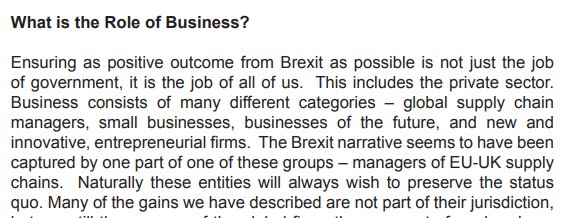
The statement "Governments usually massively underestimate the gains of international trade agreements" is given one example. Reason - there's hardly any evidence. If anything the opposite is usually assumed, they they exaggerate 11/ 

Most of the references on the figures for tackling anti-competitive market distortions refer to the author's own work - on which those who have checked the numbers report some scepticism 12/ 

There's a long and not very illuminating discussion on modelling before we get onto the IEA figures. No background is provided to these, so it is very hard to know what these numbers might mean (what regulations, where?) 13/ 

This para is a classic in demonstrating a lack of knowledge. How many negotiations at the same time can the UK do? How much would they depend on the EU negotiation because of regulations? No answers 14/ 

Crucial paragraph. We need to change food standards to have a US trade agreement or join TPP (not necessarily for Aus or NZ trade agreements). Impact on our food and drink sector is never specified 16/ 

Fairly starkly laying out the strategy - services concessions in return for changing food standards. This may not prove to be too popular. Is it possible, how will it affect economy? No answers are given yet again 17/ 

On labour and environment clauses this would seem to say that the UK should be seeking to make changes that the EU (and others?) would regard as lowering standards. 18/ 

An interesting para on why we shouldn't be part of European chemicals body. @mwarhurst will know more, but interesting to see that global regulation is equated with lack of innovation, which may or may not be true 19/ 
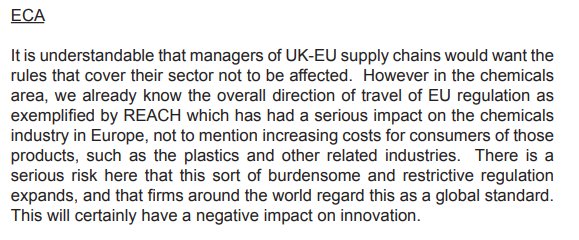
I find this convoluted to say the least, reduce food tariffs but then take measures against distortions, which are a global problem. To put it mildly this sounds like a lot of work 20/ 

Any clues who might be well placed for such a job? Many others have suggested an independent body like the Australian productivity commission, but this needs to be given more than a couple of paragraphs 21/ 
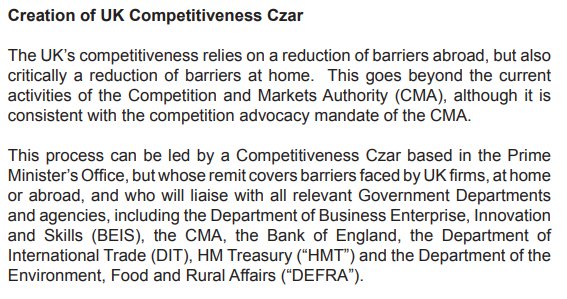
The fishing section starts questionably, like so much else (sustainability a big issue) but then meanders around - problem never really solved being the wrong fish in the wrong places - i.e. we need to trade 22/ 
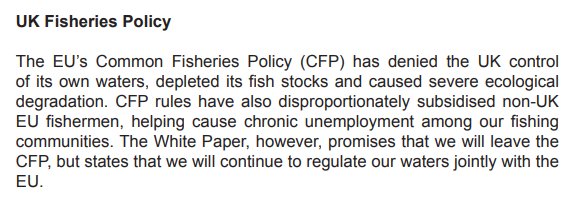
I'll skip most of the financial section, heavily deregulatory, but I did find this section interesting, remembering the big discussions on short selling in the UK a few years ago 23/ 

Data, and this is pretty much the opposite of what UK tech companies have been saying (but we made enemies with business earlier) 24/ 

Audiovisual, and the last sentence is great. A barrier, so it shouldn't be there. Could we perhaps do better than that? 25/ 
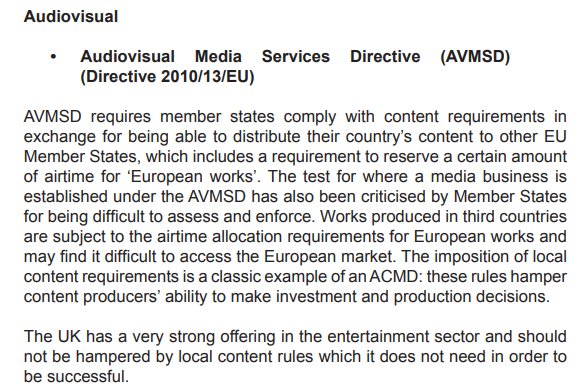
This is true for regulations, not for services. The comparison on Canada trade deals is more to do with EFTA signing this 10 years ahead of the EU. Question is whether regulations need be a big part of UK FTAs. 26/ 

On regulations in an FTA with the EU, there's a lot wrong with these suggestions. The starting point is less relevant than the destination. And the EU doesn't like GRP (good regulatory practice), that is what the US want in trade agreements 27/ 
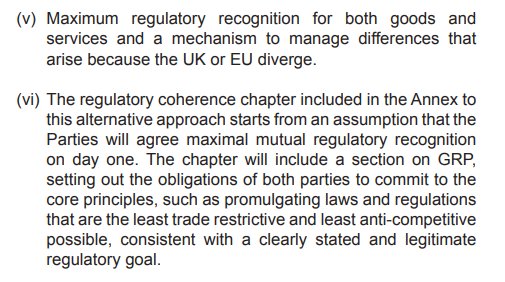
The Northern Ireland border is solved with technology, checks away from the border, and more realistically, an all Ireland SPS zone. Nothing really new here 30/ 

On to a UK-US trade deal, and we have this kind of vague statement, which needs to be broken down to be useful (which sectors, which states, how does it clash with the EU trade deal) 31/ 

On the NHS and UK-US trade deal, dubious. US firms have complained, particularly about price setting. I think this has appeared in official documents in the past. 31/ 

We should also start negotiations with India. At least the report says this won't be easy, but it also suggests we should go easy on Indian food standards, which might just be a tad controversial. As of course will be movement of people 32/ 

My absolute favourite paragraph on the report comes near the end, on rolling over existing agreements. We're leaving the EU, but can we keep existing supply chains / rules of origin in these agreements? Might be tricky to negotiate... 33/ 
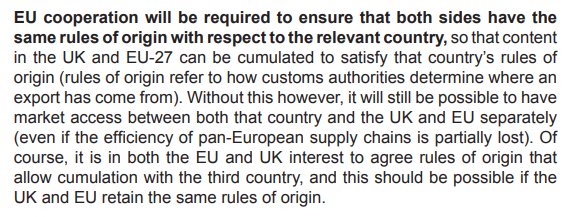
Here we go again, join TPP, if necessary ignoring whether stakeholders think it is a good idea, changing our food standards, but without investigating the impact of this 34/ 
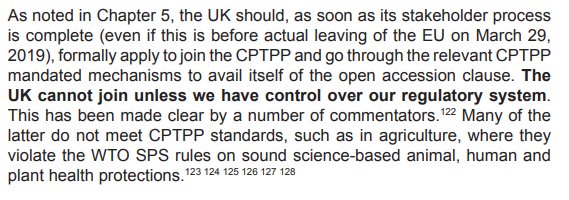
Nearly there now, on TRQ negotiations at the WTO this just isn't true, we have made presentations to WTO members, and promised further liberalisation, but as yet they don't believe us strangely enough 36/ 

A strange idea to join the agricultural exporters at the WTO, also perhaps more obviously to push for services liberalisation (and later TiSA) - but it will obviously be difficult 37/ 
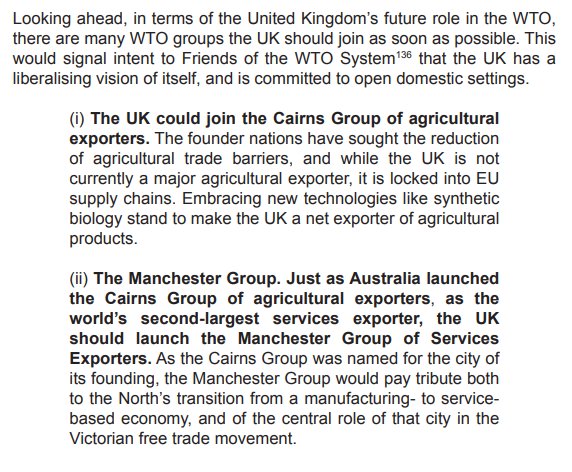
A proposal to abandon the European Standard Setting bodies which BSI among others wishes to avoid at all costs... 38/ 

If the EU fail to play ball - take them to WTO dispute settlement. Another mention here of how awful the EU is, which by now is quite a theme 39/ 
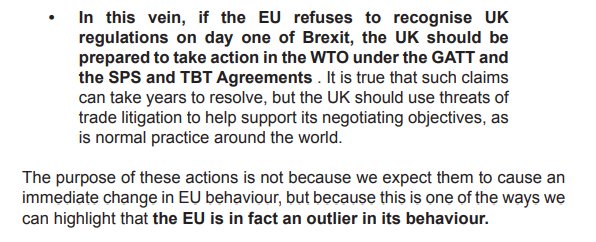
The very last point from the report I'll make. The civil service should do less, political appointments more. So we should break up Whitehall as well? 40/ 

At last if you've read this long, the summary. There's a huge amount in here, but none of it is developed, questioned, proved, it is all surface. Except for US food standards. Definitely US food standards. 41/ and finally ends
• • •
Missing some Tweet in this thread? You can try to
force a refresh







